News
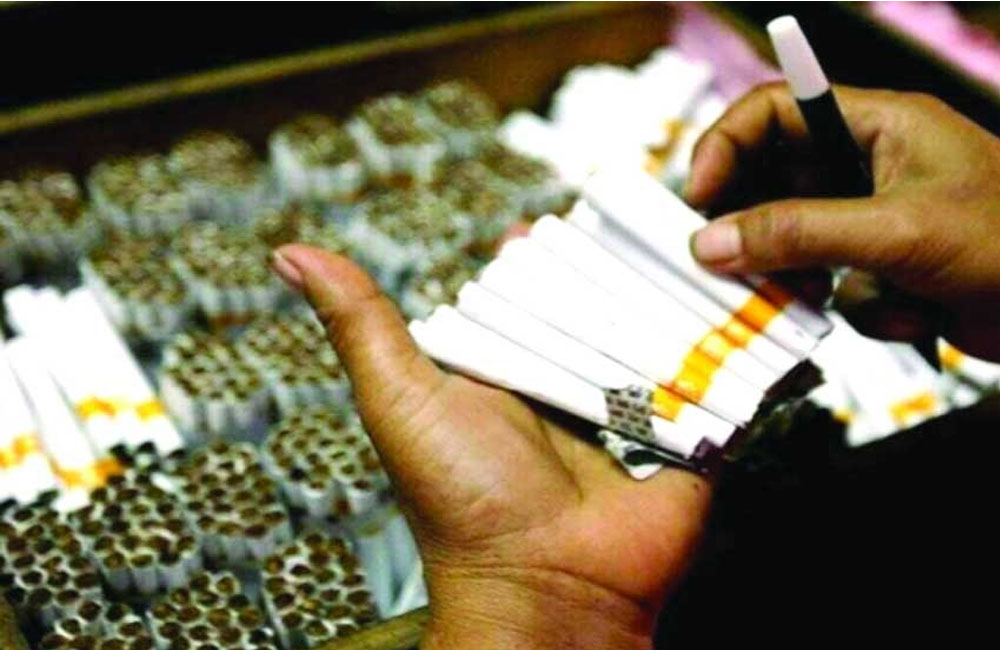
Man Arrested in Wellampitiya with Illegal Cigarette Haul Worth Over Rs. 16 Million
A 47-year-old individual was taken into custody in Wellampitiya yesterday after authorities discovered a large stock of illegally imported Manchester-type cigarettes at a residential premises.
The arrest followed a coordinated operation carried out by the Sri Lanka Army together with the Rajagiriya Police Special Task Force. Officials confirmed that a total of 165,200 cigarettes, estimated to be worth approximately Rs. 16.52 million, were seized during the raid.
The Sri Lanka Army stated that the Wellampitiya Police Station has launched further investigations into the incident.

Global stocks stage dramatic rebound after Trump announces Greenland framework
Global shares rebounded on Wednesday (Jan 21) from a selloff the previous session after US President Donald Trump said a framework on a future deal over Greenland has been reached.
Trump, who is attending the World Economic Forum in Davos, said the US will no longer be imposing tariffs that had been scheduled to take effect from Feb 1. He had ruled out taking Greenland by force in an earlier speech, which also helped to calm investor nerves.
Wall Street ended higher on Wednesday, with the S&P 500 posting its biggest one-day percentage gain in two months.
Both the Dow Jones Industrial Average and Nasdaq Composite also enjoyed milestone days, gaining the most in percentage terms since Jan 5 and Dec 19, respectively.
The Dow Jones Industrial Average rose 1.21 per cent, the S&P 500 gained 1.16 per cent and the Nasdaq Composite added 1.18 per cent. The benchmark S&P 500 registered its biggest daily percentage gain since Nov 24.
“Markets aren’t rallying because they suddenly understand the endgame in Greenland,” said Matthew Smart, director of financial planning and portfolio analysis at WWM Investments in Chicago.
“They’re rallying because uncertainty just got priced out. The signal from Donald Trump coming out of Davos is coordination, not confrontation, and that matters. Pulling back near-term tariffs, while opening a framework with NATO around Greenland tells investors this is shifting from headline risk to negotiation risk.”
MSCI’s All-World index was up 0.87 per cent, after losing ground in the last session, while Europe’s STOXX 600 index finished a touch lower by 0.02 per cent. Britain’s FTSE index added 0.11 per cent.
The VIX index, which measures demand for protection against big swings in the S&P 500, dropped more than 15 per cent to 17, a day after jumping to its highest since November. The index is often used as a proxy for investor nervousness.
“The market bounced when he said we wouldn’t use force,” said Mark Hackett, chief market strategist at Nationwide in Boston. “Following the events of last April, investors are catching on that his negotiating style is very different than past administrations, so uncertainty is a natural outcome.”
The European Parliament decided to suspend its work on a trade deal between the 27-member bloc and the US, a parliament member said, following Trump’s repeated requests to take control over Greenland. The European Union will convene an emergency summit in Brussels on Thursday to discuss the matter, with the long-standing US-EU alliance at risk.
“You had the Venezuelan thing, you had Greenland and you had Iran and none of these things seemed to be making a huge dent,” said James St Aubin, chief investment officer at Ocean Park Asset Management in Santa Monica, California.
“Obviously we had a pretty significant selloff yesterday but in the grand scheme of things it seems the market should have a hard time making new highs and yet it continues to brush off some of these very provocative ideas that Trump likes to throw around.”
BOND PRICES RALLY
The global bond market was still reeling from a brutal selloff, having been caught up in worries over exposure to US assets and a surge in Japanese government borrowing costs.
At the epicentre were long-dated Japanese sovereign bonds, which endured their most aggressive selloff in nearly 25 years on Tuesday as fears grew over increased government spending under Japanese Prime Minister Sanae Takaichi.
US 30-year Treasury yields neared the 5 per cent threshold for the first time since September, while German government bond yields also rose sharply.
By Wednesday, Japanese bond prices rallied as buyers returned, almost entirely reversing the previous day’s rise in yields. A similar dynamic played out across US Treasuries, where 30-year bond yields fell 5.1 basis points to 4.8693 per cent. The yield on benchmark US 10-year notes eased 4.4 basis points to 4.251 per cent.
In currency markets, the dollar index, which tracks the US currency’s performance against six others, rebounded from earlier losses and was up 0.25 per cent. The euro pared earlier gains and was down 0.34 per cent at 1.1686, while the Swiss franc fell, leaving the dollar up 0.69 per cent at 0.7954 francs.
The yen was down 0.16 per cent at 158.37 per dollar ahead of a Bank of Japan policy meeting on Friday. No rate hike is expected this time, although policymakers could signal an increase may be coming as soon as April.
Oil prices edged higher. Optimism around tighter supply, after a temporary shutdown at two large fields in Kazakhstan, was offset by expectations of a build in US crude inventories. Brent crude futures settled up 0.49 per cent at US$65.24 a barrel. Spot gold was up 1.11 per cent to US$4,815.93 per ounce.
Source:adaderana.lk

Work begins to rebuild Paranthan Chemical Factory after 39 years
The foundation stone was laid on Wednesday (21 Jan) at the Paranthan Chemical Industrial Zone to reconstruct the Paranthan Chemical Factory, which had remained closed since 1985 due to the conflict in the Northern Province.
The ceremony was held under the patronage of the Minister of Industry and Entrepreneurship Development, Sunil Handunneththi.
The factory is being reconstructed with an investment of Rs. 6,900 million and is scheduled to be completed within 30 months. Upon completion, it is expected to produce Poly Aluminum Chloride (PAC) and Hydrochloric Acid (HCL) to meet domestic market demand.
The foundation stone–laying ceremony was held with the participation of the Minister of Fisheries, Ramalingam Chandrasekaram; Secretary to the Ministry of Finance, Harshana Suriyapperuma; Chairman of C/S Paranthan Chemicals Company, Sadanamdam Nesarajan; along with several government officials and distinguished guests.
According to the Ministry of Industries, the Paranthan Chemical Factory is one of the country’s earliest industrial establishments, originally launched in 1954 in Paranthan, Kilinochchi District, in the Northern Province, as a government-owned chemical factory.
In 1957, under the State Industrial Corporations Act No. 49 of 1957, it was brought under the name Paranthan Chemicals Corporation. Prior to its closure in 1985, the factory utilized locally available raw materials to produce caustic soda and liquid chlorine as its main products, while hydrochloric acid, zinc chloride, and table salt were produced as by-products.
Subsequently, under the Conversion of Public Corporations or Government-Owned Business Undertakings into Public Companies Act No. 23 of 1987, Paranthan Chemicals was incorporated as a public limited liability company on 17 January 1991.
(Source:Newswire)

Change in Weather Pattern Expected From Tomorrow After Dry Spell
The Department of Meteorology has indicated that the current dry weather conditions across the country are likely to shift from tomorrow (23).
Until then, predominantly dry conditions are expected to continue across most parts of the island. The department has also warned of possible ground frost in certain areas of the Nuwara Eliya District during the early morning hours.
In addition, misty conditions are forecast in several regions, including the Western, Sabaragamuwa, Central, North Western, North Central and Uva provinces. Similar conditions may also be experienced in parts of the Galle, Matara, Ampara and Vavuniya districts during the early hours of the day.
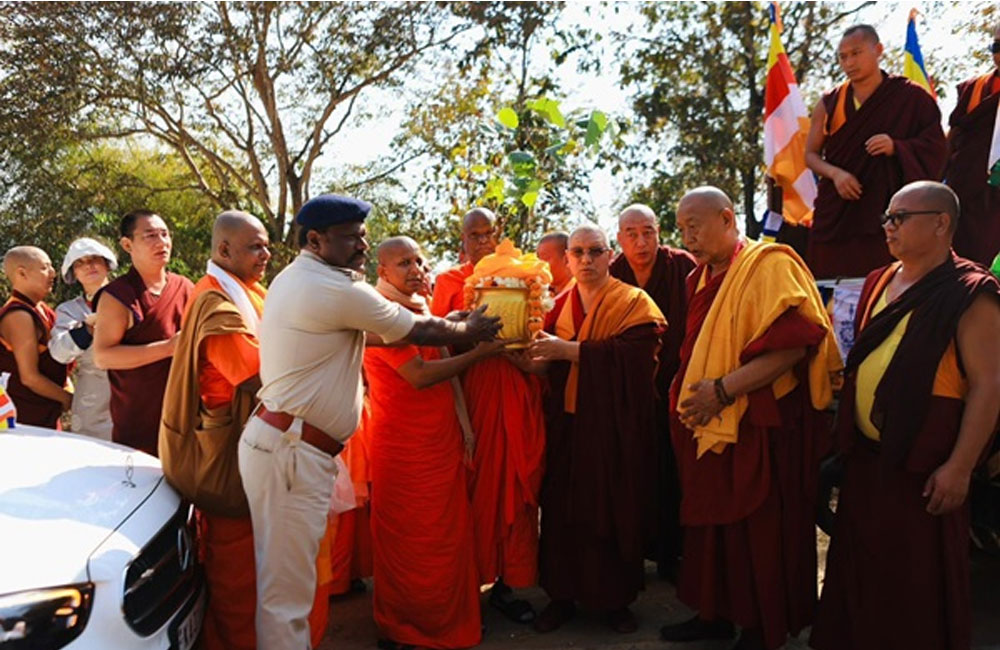
Atamasthanadhipathi Pallegama Hemarathana Thera meets the Dalai Lama
The Atamasthanadhipathi of Sri Lanka, the Most Venerable Dr. Pallegama Hemarathana Nayake Thera, met His Holiness the 14th Dalai Lama, the world-renowned icon of universal compassion, on Tuesday (20 Jan).
According to the Satipatthana Magazine, the historic meeting marks a watershed moment in the centuries-old relationship between Indo-Tibetan and Sri Lankan Buddhist traditions, the Satipatthana Magazine said, noting that it is the first time in recorded history that the spiritual heads of these two preeminent lineages have met in such a capacity, drawing the attention of the global Buddhist community.
The Weight of Tradition
The position of Atamasthanadhipathi carries immense prestige within the Buddhist world. By ancient royal decree, Sri Lanka recognizes three supreme pillars of Buddhist heritage: Sri Dalada Maligawa (The Temple of the Sacred Tooth Relic), Sri Pada (The Sacred Footprint), and the Jaya Sri Maha Bodhi. As the custodian of the Eight Sacred Places (Atamasthana) in Anuradhapura, the Atamasthanadhipathi holds a position of profound spiritual and legal authority.
The meeting between the guardian of Sri Lanka’s most ancient living heritage and the spiritual leader of the Tibetan people signifies a powerful unification of the Pali and Sanskrit Buddhist traditions.
Fulfilling a Lifelong Aspiration
Adding a layer of deep emotional significance to the visit, the Most Venerable Thero presented His Holiness with a sacred sapling of the Jaya Sri Maha Bodhi.
For decades, His Holiness the Dalai Lama has expressed a profound desire to perform a pilgrimage to the Jaya Sri Maha Bodhi in Anuradhapura—the oldest historically documented tree in the world, grown from a branch of the original Bodhi tree under which the Buddha attained Enlightenment. While past circumstances prevented such a journey, the arrival of this authentic sapling brings the spirit of the Jaya Sri Maha Bodhi directly to His Holiness, fulfilling a long-held aspiration.
A Living Legacy
The sacred sapling was scheduled to be planted on Wednesday (21 Jan) during a grand ceremony at the Buddhist University within the Gaden Jangtse Monastery complex. The event was scheduled to be conducted with full monastic honours and attended by tens of thousands of Tibetan monastics and devotees from across India and abroad.
This “Green Diplomacy” initiative stands as a testament to the enduring bond between the people of Sri Lanka and India, ensuring that the roots of the Dhamma continue to grow deep and wide for generations to come.
(Source:Newswire)

Brooklyn Beckham Speaks Out on Family Rift, Alleges Parents’ Control Over Personal Life
Brooklyn Peltz Beckham has publicly addressed long-standing rumors of tension with his parents, David and Victoria Beckham, using Instagram to accuse them of controlling the family’s public image and interfering in his personal affairs.
In a lengthy post, the 26-year-old stated that he had tried to keep the issues private for years but felt compelled to respond. He claimed that his parents and their team have “spread countless falsehoods in the media” and indicated he no longer wishes to reconcile with them. Brooklyn also alleged that his parents attempted to disrupt his relationship with his wife, actress Nicola Peltz Beckham, citing issues related to their 2022 wedding preparations and pressure to relinquish rights to his own name.
David Beckham responded indirectly while speaking at the World Economic Forum in Davos, emphasizing the role of social media and noting that children are “allowed to make mistakes” as part of life. He refrained from directly addressing Brooklyn’s accusations when questioned further.
The situation has attracted significant media attention, highlighting a deeply personal family dispute, with the Beckhams reportedly remaining largely estranged at present.

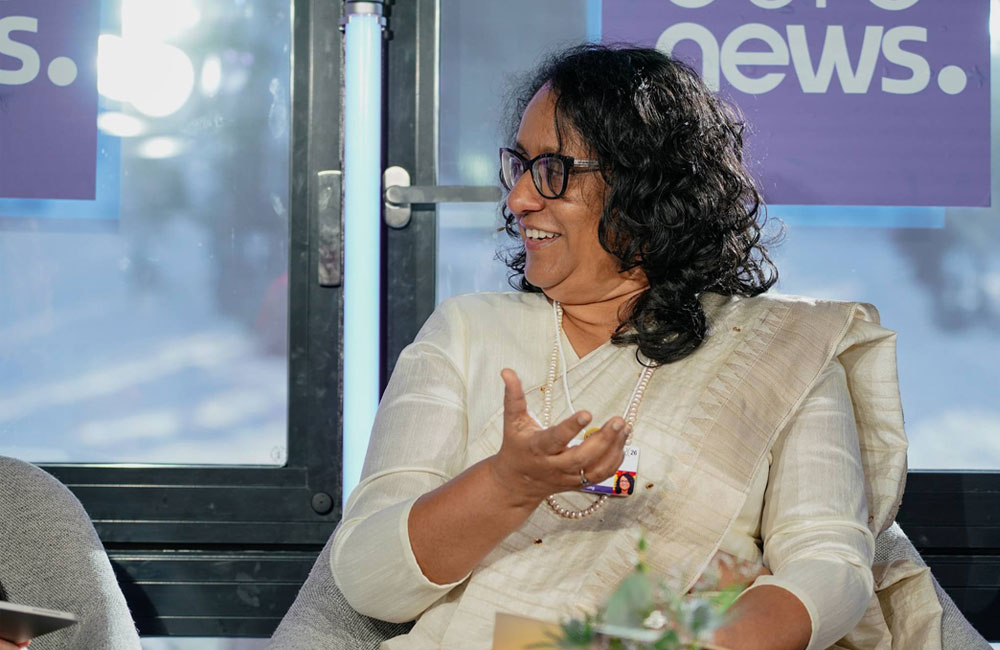
“Exclusion of women is structurally maintained,” PM Harini tells Davos forum
Sri Lankan Prime Minister Harini Amarasuriya said that contributions of women continue to be systematically undervalued, particularly in unpaid care work, informal labour, and agriculture sectors, despite women increasingly asserting agency in political, economic, and social spheres across the world.
“The exclusion of women from decision-making is not incidental; it is structurally maintained through gendered power hierarchies. Addressing these barriers is about transforming institutions and power structures to create enabling environments in which women can lead with confidence,” PM Amarasuriya said.
She made the remarks on Wednesday (21 Jan) while addressing the World Woman Davos Agenda 2026 at World Woman House, held on the sidelines of the 56th Annual Meeting of the World Economic Forum in Davos-Klosters, Switzerland, a high-level forum organized under the theme “Women Leading the Changing Global Order.”
“From a political standpoint, the exclusion of women from decision-making is not incidental; it is structurally maintained through gendered power hierarchies. Attacks on women in leadership, particularly in politics, through harassment, character assassination, and systemic marginalization, often force capable women, including those aspiring to leadership, to withdraw or refrain from participation, thereby reinforcing entrenched patriarchal structures,” she said.
The Prime Minister went on to note that addressing these barriers is not about protection but about transforming institutions and power structures to create enabling environments in which women can exercise leadership with autonomy, authority, and confidence.
“Sri Lanka demonstrates what is possible when political commitment aligns with the resilience of its people. Under our current inclusive government, historic strides have been made in political representation. For the first time, 20 women have been elected to Parliament. This commitment is reflected not only in vision; it signals a shift toward more inclusive governance,” she added.
Concluding her address, PM Amarasuriya stated that leadership is not merely about occupying seats at existing tables, but about restructuring systems themselves.
She reaffirmed Sri Lanka’s commitment to feminist, intersectional leadership, calling on global actors to ensure that women and marginalised communities are not only participants, but principal architects of the policies shaping the future global order.
(Source:Newswire)
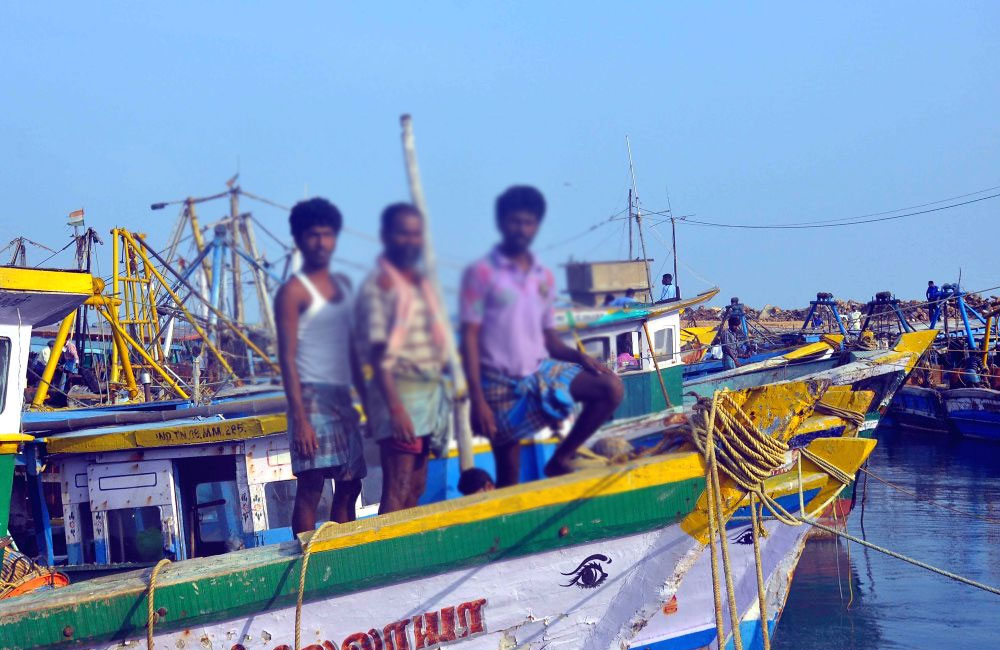
Sri Lanka Navy Detains Indian Fishermen, Seizes Boats for Illegal Fishing off Jaffna
The Sri Lanka Navy intercepted two Indian fishing vessels and detained seven Indian fishermen during a late-night operation on 20 January, after they were found illegally fishing in Sri Lankan waters off the coast of Kovilan in Jaffna.
According to the Navy, the Northern Naval Command detected several Indian fishing boats that had crossed into Sri Lankan territorial waters and were engaged in unlawful fishing activities. Naval craft were deployed to chase the vessels out of the area, during which boarding teams seized two boats whose crews continued to fish despite warnings.
The Navy stated that the arrested fishermen and the seized vessels will be handed over to the Fisheries Inspector of Myliddy, Jaffna, to initiate further legal action.
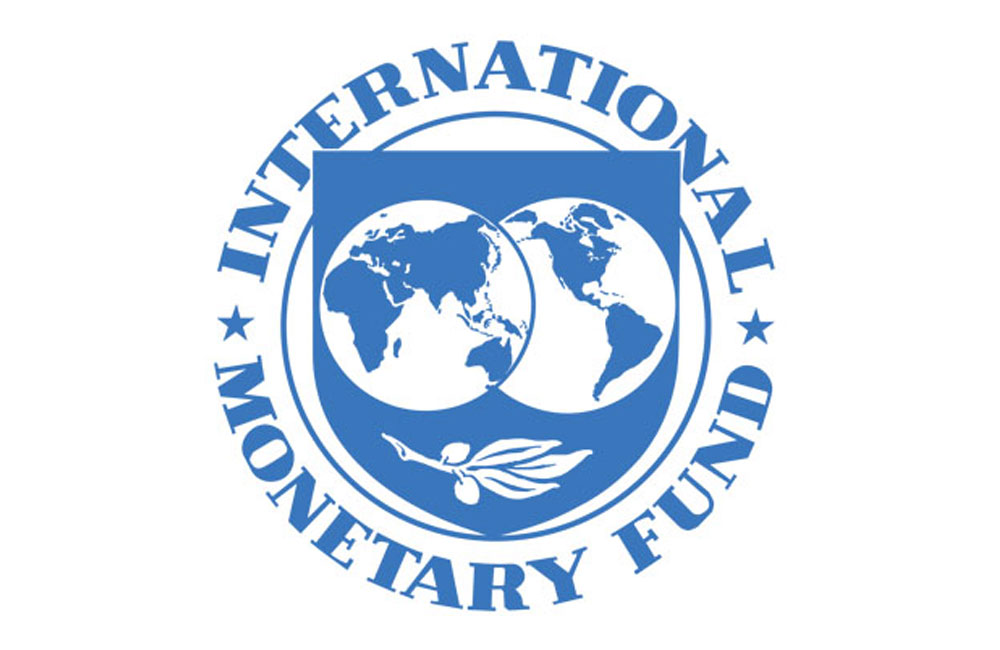
IMF Team Arrives in Sri Lanka to Review Cyclone Ditwah Impact and Aid Program
An International Monetary Fund (IMF) delegation is due to arrive in Sri Lanka today (22) for an official visit focused on assessing the fallout from Cyclone Ditwah and engaging in discussions with local authorities.
During the visit, which will continue until January 28, the IMF team will evaluate the economic and humanitarian consequences of the cyclone, including its effects on infrastructure, livelihoods and overall economic stability. The delegation will also examine the measures taken by the government to manage the challenges arising from the disaster.
In addition, the IMF has recently concluded the fifth review under Sri Lanka’s Extended Fund Facility. Discussions during the visit are expected to include efforts to obtain approval for the next phase of the IMF-supported program.

Electricity Unions Threaten Strike Over Planned Dissolution of CEB
Electricity trade unions have warned that they will initiate an immediate strike if the government proceeds to dissolve the Ceylon Electricity Board (CEB) without honoring commitments made during the ongoing restructuring process.
Speaking at a press conference in Colombo yesterday, representatives from 24 unions-including the Engineers’ Association, the Technical Engineers and Officers’ Association, and the Industrial Technicians’ Association-stated they are ready to take collective action without prior notice.
The government’s restructuring plan involves creating six subsidiary companies to take over the CEB’s assets, liabilities, and operations. The framework has been finalized with guidance from the Attorney General, the Minister of Finance, and the Treasury. Once Cabinet approval is granted, the responsible minister is expected to gazette the official date for the CEB’s dissolution.

GMOA Announces Strike at National Eye Hospital, Wider Action Planned
The Government Medical Officers’ Association (GMOA) has announced that doctors at the Colombo National Eye Hospital will launch a strike today (22 January) in response to what it describes as irregular staff transfer practices.
GMOA spokesperson Dr. Chamil Wijesinghe said the strike is set to begin at 8.00 a.m. today. He added that similar trade union action is continuing at hospitals across the Eastern Province.
The association further warned that an island-wide indefinite trade union action is scheduled to commence from tomorrow (23 January), citing the government’s continued failure to honor commitments related to doctors’ allowances.
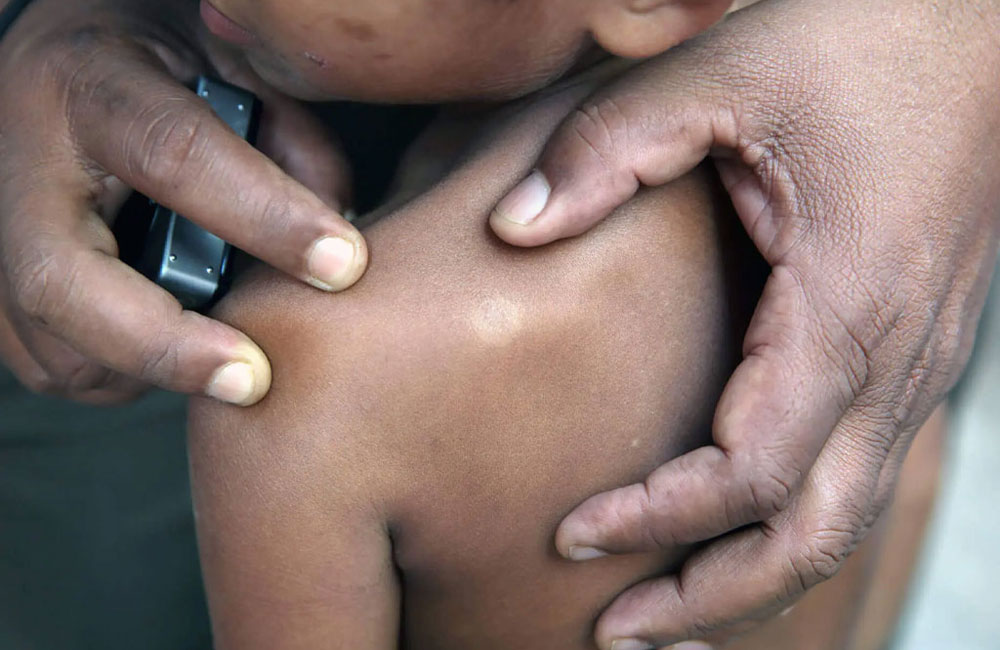
Children Among the Infected: Sri Lanka Reports 1,282 Leprosy Cases in 2025
sri Lanka reported 1,282 new leprosy cases in 2025, with nearly one in ten patients being children under the age of 15, health authorities revealed, underscoring the continued public health challenge posed by a disease often clouded by fear and misinformation.
Speaking at a media briefing held to mark World Leprosy Day on January 25, Director of the Leprosy Eradication Campaign at the Ministry of Health, Dr. Yasoma Weerasekara, said that 123 of the newly detected patients were children below 15 years, a figure that highlights ongoing community transmission and the need for heightened vigilance.
Dr. Weerasekara noted that around eight per cent of new and relapsed patients already suffer from disabilities by the time they seek treatment, largely due to delayed diagnosis. “Leprosy is a curable disease, but delays can lead to irreversible complications,” she stressed, adding that the Ministry has intensified efforts to prevent disability through early detection and prompt medical intervention.
As part of this push, the Leprosy Control Campaign has rolled out a special early-detection programme aimed at identifying cases at an early stage, screening close contacts of confirmed patients, and providing comprehensive testing, treatment, and follow-up care. The initiative, she said, is designed not only to treat patients but also to break the chain of transmission at the community level.
Dr. Weerasekara emphasized that treatment for leprosy is provided free of charge at government hospitals across the country, including care for close contacts of patients. She urged individuals experiencing symptoms such as skin patches with loss of sensation, numbness, or muscle weakness to seek medical attention without fear or hesitation from government hospitals, Public Health Inspectors, or Medical Officers of Health.
Calling on the public to challenge long-standing myths, she said stigma remains one of the biggest barriers to timely treatment. “Misconceptions surrounding leprosy continue to prevent people from coming forward early. This disease is treatable, and early care can prevent disability,” she said.
Adding medical perspective, Dr. Chathurarya Siriwardena, Dermatologist at the Central Leprosy Clinic of the Colombo National Hospital, explained that leprosy is not a highly contagious disease and often takes years to develop after the bacteria enter the body.
“Leprosy primarily affects the skin, but in advanced stages it can involve other organs such as the eyes and nose,” he said. Dr. Siriwardena explained that transmission may occur when bacteria are released into the environment through coughing or sneezing by an untreated patient, and subsequently inhaled by others.
However, he reassured the public that about 95 per cent of Sri Lanka’s population has natural immunity to the leprosy-causing bacteria. “Only around five per cent of those exposed are likely to develop the disease,” he noted, underscoring that fear and social exclusion are often disproportionate to the actual risk.
Health officials say the focus this year is not only on medical treatment, but also on public awareness, early reporting, and stigma reduction, particularly in communities where children are being affected. As Sri Lanka continues its journey toward eliminating leprosy, authorities stress that knowledge, early care, and compassion remain the most effective tools in defeating a disease that is both preventable and curable.
(Source:lankanews.lk)
Page 28 of 681